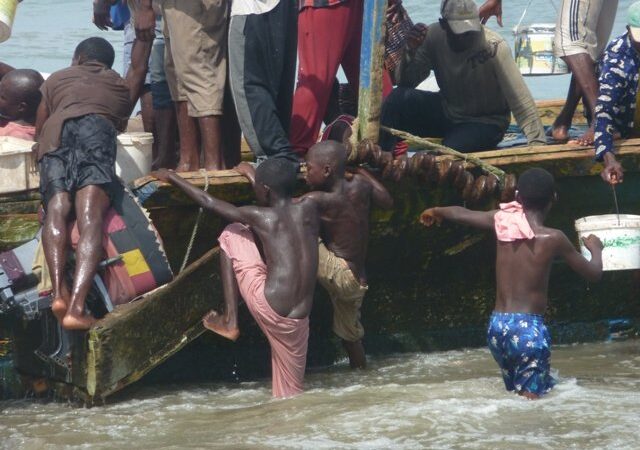
RUDEYA in partnership with Network for Community Planning Advocacy and Development (NECPAD) and Cooperazione Internazionale Sud Sud (CISS) undertook a 30-month project on combatting child labour in Ghana with funding from European Commission. The project aimed to contribute to eliminating the worst forms of child labour (WFCL) as a result of trafficking in human beings (THB) in the fishing sector in Ghana. The project focused on the fisheries of Volta Lake where International Labor Organization (ILO) estimates that 21,000 children are working in slavery practices. The project tangibly contributed “to promoting specific actions that will eliminate the practice of child labour in fishing as a result of human trafficking”.
Key Activities carried out:
- Meeting the stakeholders to complete an ex-ante evaluation form to collect the information for the creation of a thematic network across 6 regions. The meetings with the stakeholders at the Municipal, Metropolitans and District authorities were integrant part of a Rapid Rural Appraisal (RRA) conducted in the 13 target districts and directed to finalize the identification of the 30 fishing communities where the activities will be concentrated.
- Exploratory research on child trafficking and child labour in the minor islands of the Volta Lake located in the target districts. The exploratory research facilitated the exchange of information and the data collection in this domain through observation, focus group discussions and case studies.
- A Joint training cycle on child labour and child trafficking provisions targeting the members of the DCPCs and CCPCs from 13 target MMDAs. This was a capacity building programme targeted at the members of the Districts Child Protection Committees (DCPCs) and Community Child Protection Committees (CCPCs) in 3 steps: 1) delivery of training to key representatives of the committees; 2) provision of technical assistance by practitioners to overcome specific circumstances which characterize the district/community; 3) guidance and supervision in the implementation of Community Action Plans (CAPs).
- A workshop that provided the D/CCPCs members with the basic knowledge needed to incorporate the identification, protection and prevention of child trafficking in the community action plans (CAPs).
- Monitoring the implementation of the Community Action Plans (CAPs) and follow-up activities. Local communities were be supported in designing their own community action plans (CAPs) and empowered to implement them by the team of experts provided by the project.
- Provision of technical assistance to first line workers at support of the identification of working children victims of trafficking and trafficking preventing measures at the DCPC and CCPC levels.
- Provision of Itinerant counselling sessions for the children working in the fisheries of Lake Volta. The services of free legal aid were delivered by a team composed by: 1 lawyer, 1 psychologist and 1 educator.
- Design of a “Sustainable livelihood” scheme for the reintegration of the trafficked children in the fisheries of Lake Volta.
- Sub-grants made to three (3) Community-Based Organizations in Bono East and Greater Accra Region applying the “Sustainable livelihood” scheme to support the vulnerable children rescued from the worst forms of hazardous works.
- Finally, a participatory evaluation of the “Sustainable livelihood” scheme experienced at community level.

